
College Expands Partnership with CREATE-X to Double Down on Entrepreneurship Curriculum
Entrepreneurship is on the rise in the College of Computing, with student interest in startup-driven education hitting record highs.
To meet this demand, the College is doubling down on efforts to equip students with entrepreneurial skills, offering expanded course sections and deeper collaborations with CREATE-X. Faculty say the goal isn’t just to produce startups—it’s to teach students how to identify and tackle meaningful problems, a skill that’s increasingly vital in the rapidly evolving tech landscape.
Entrepreneurial Capstone Growth Through Cross-College Collaboration
The College’s entrepreneurial capstone more than doubled in size within the same academic year, growing from 55 students in Fall 2023 to 126 this semester.
This growth can be traced back to the collaborative roots of the CREATE-X Capstone. In fall of 2018, Associate Dean for Undergraduate Education Olufisayo Omojokun partnered with Mechanical Engineering Professor Craig Forest to co-teach the Institute's first multi-college capstone section.
This allowed engineering and computing students to work together in a dynamic learning environment. Then, there were just nine students, eager to transform their ideas into real-world ventures. Over subsequent semesters, the course experienced steady growth up until the this spring's big jump.
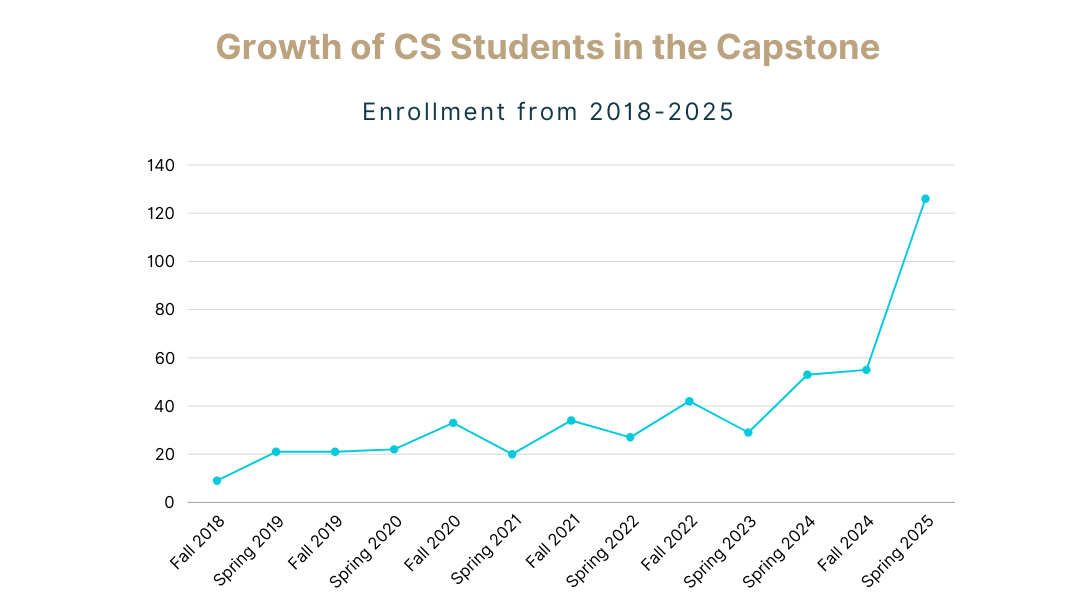

"Right away, we saw how powerful this combination of engineers and computer scientists working together was. The College of Computing has always been a willing and eager partner to try experiments and boldly move toward this future direction. Every step of the way, they've risen to the challenge," Forest said.
Preparing Problem Seekers, Not Just Problem Solvers
This jump represents the College’s emphasis on creating the next generation of problem solvers who are also problem seekers.
“It’s not just about finding solutions but identifying the problems that must be solved. This emphasis is more important than ever given the changing landscape of computing,” Omojokun said.
He points to AI and automation as key drivers of this shift. While launching startups is an exciting outcome, the deeper focus is on preparing students for a future where the definition of a software engineer may evolve and the number of traditional roles in the market could shift. With the power of computing, students who can identify meaningful problems are better equipped than ever to solve them—often with fewer resources and smaller teams.
“Can our College lead in graduating such multifaceted students who know how to fix things and what to look for? Embedding entrepreneurship into our non-elective courses gives us that opportunity,” Omojokun said.
RELATED: SCI Pilots AI-Enhanced Capstone to Advance Software Engineering Instruction
Building Confidence Through Entrepreneurship
While some students may go on to continue their projects after the course, others might revisit them after graduation, driven by personal motivation or market opportunities. Many will enter the workforce and, perhaps years later, draw on the confidence they built through this capstone to forge their paths in entrepreneurship.
“It’s not necessarily about launching the most successful startups right now. It’s about giving students the confidence to try—and even fail—while the stakes are low,” Omojokun said.
“Whether they pursue entrepreneurship immediately or later in their careers, my hope is that the confidence from this course sticks with them if they ever choose to do something different and forge their path.”
Inside the CREATE-X Capstone Experience
SCI faculty members Aaron Hillegass, Dan Forsyth, and Jennifer Whitlow co-mentor the College’s entrepreneurial capstone course. Whitlow describes the course as a hands-on, problem-driven environment where students are encouraged to tackle scalable, global challenges.
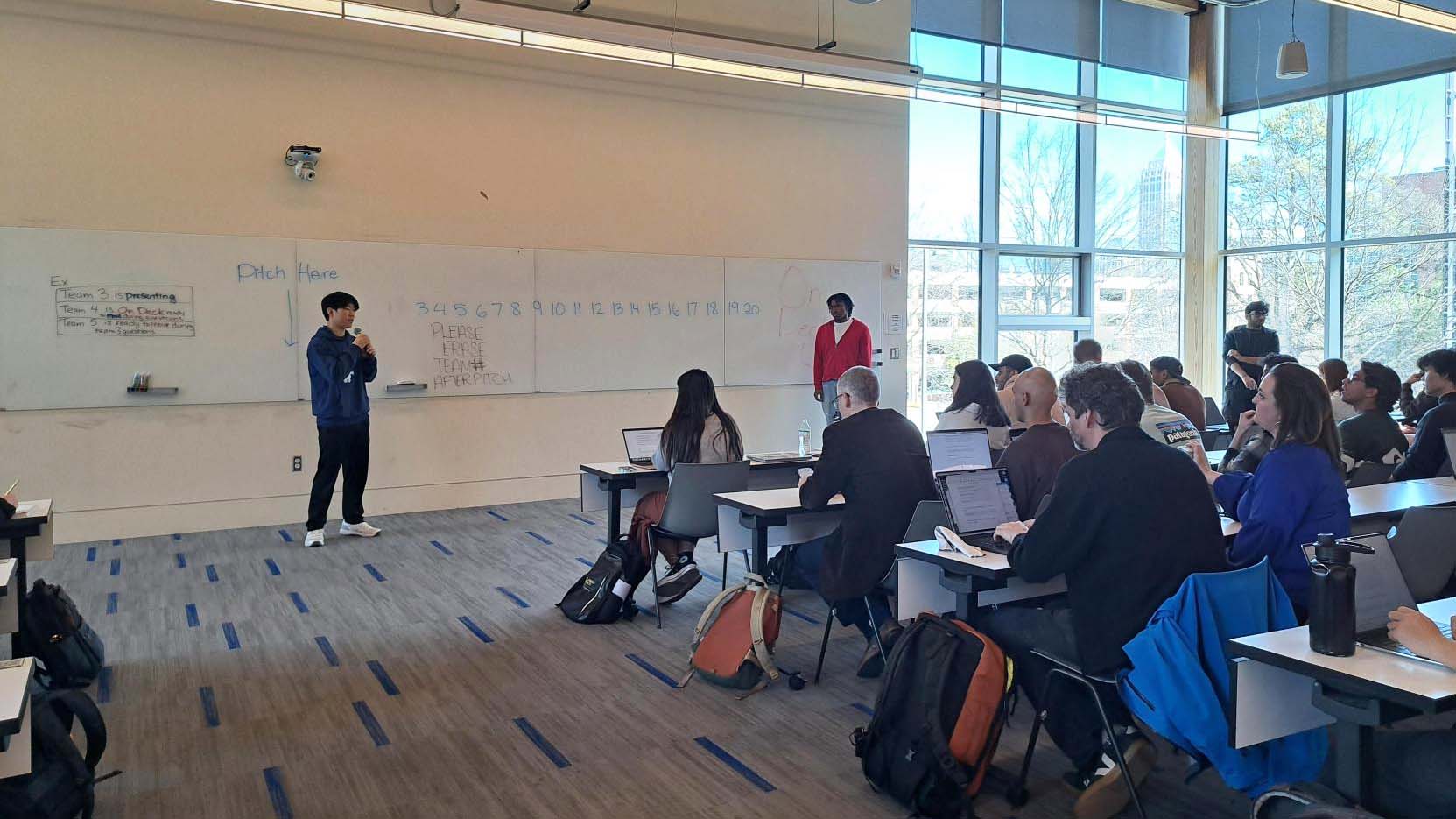
“We’re trying to treat it like a venture studio would work,” said Whitlow, who is familiar with executing such a model from her leadership role at a startup accelerator. “The first part of the class is focused on identifying scalable real-world problems and understanding actual pain points through customer discovery.”
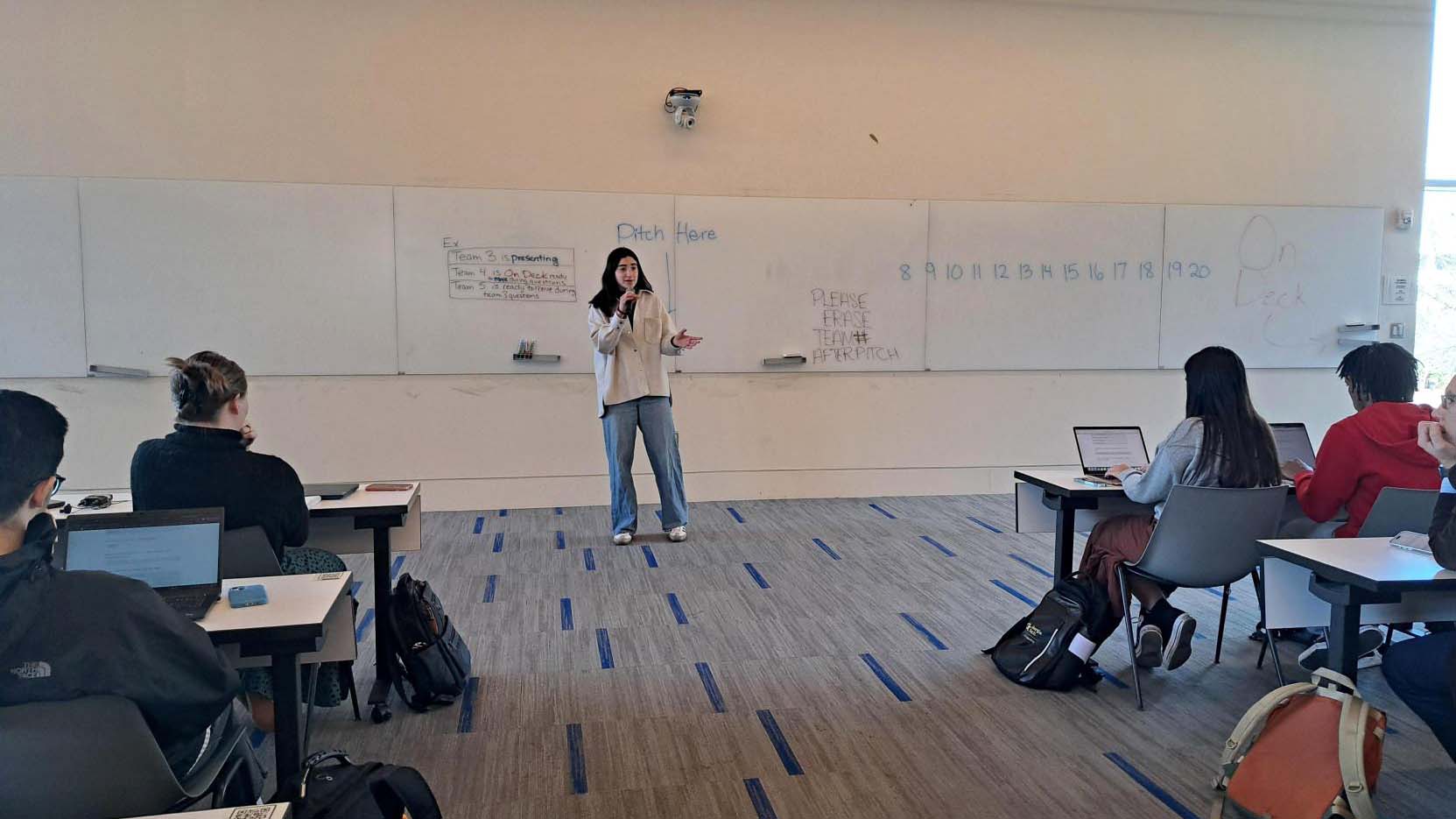
Forsyth, Hillegass, and Whitlow have startup experience and unique perspectives that they share with students. These insights help students understand the entrepreneurial process of identifying problems, designing solutions, and building products.
"This is the only course at Georgia Tech where they go from zero to 100. By the end of the semester, students have developed something entirely from scratch, giving them a unique skill set that sets them apart from their peers," said Whitlow, a Georgia Tech computational media alumna.
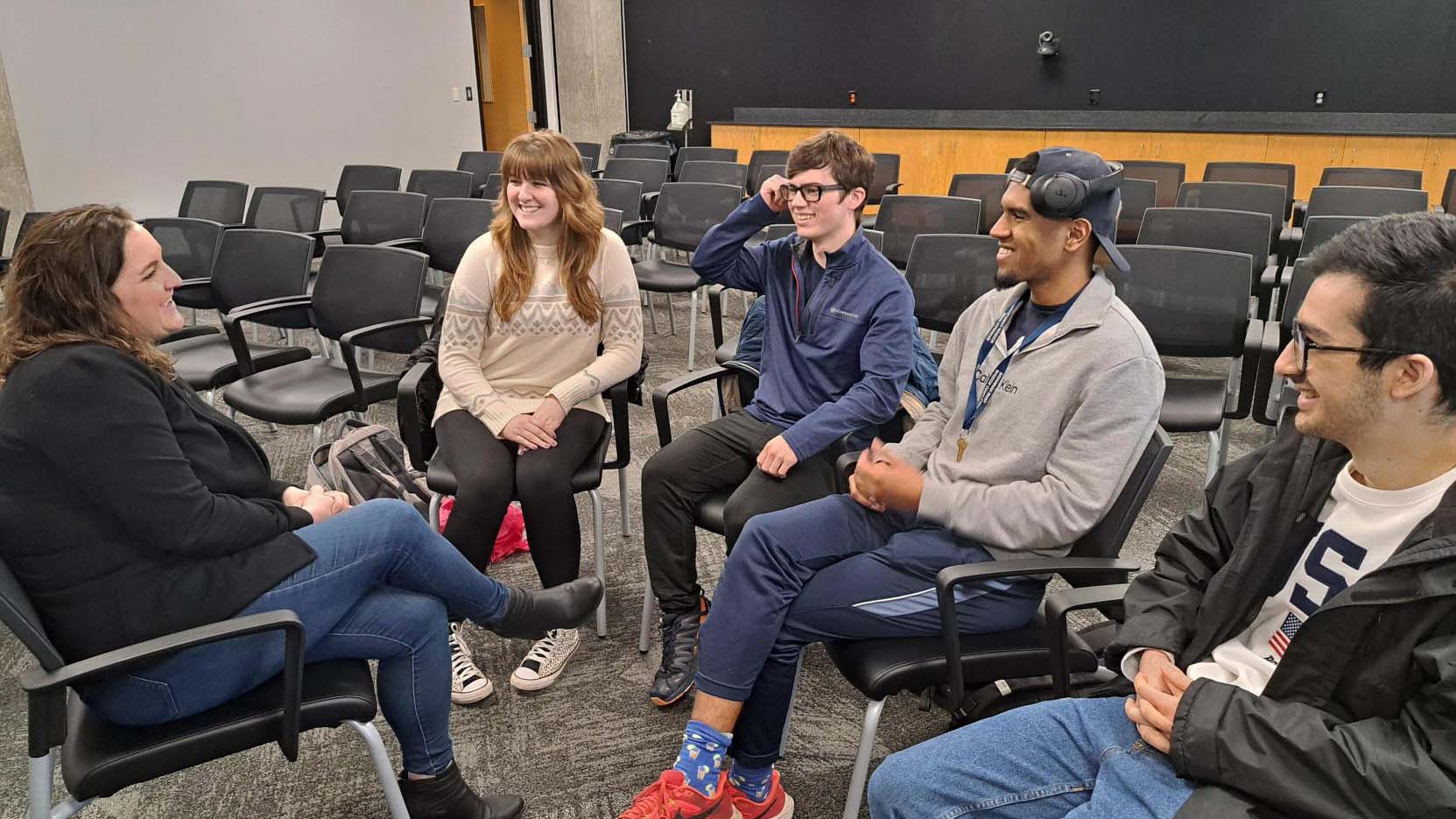
Based on enrollment growth this Spring, the College offered students the option to choose between the course’s two sections. Computing students seeking to work with engineering students on solutions incorporating hardware and software elements signed up for the multidisciplinary section. Students exclusively interested in software chose the section dedicated to software-based solutions.
Hillegass, who recently sold a midsized software company and spent years at different startups before his academic career, is mentoring thirteen software-only teams.
“The software-focused section gives me a chance to apply my knowledge and give students a perspective that can help them address the real-world challenges and opportunities specific to companies whose fate is determined primarily by software,” Hillegass said.
Forsyth, who has many years of industry experience building large software systems, says the following about the process of guiding students through the problem finding phase of the course:
“The problem-finding phase requires balancing a passion for solving particular problems with the realities of customer preferences, technical limitations, team strengths, and financial sustainability. This phase is often the most challenging because teams must navigate ambitious ideas, practical constraints, and customer needs while making tough, objective decisions," he said.
"I can't make choices for them, and the future is uncertain, but I can challenge them with hard questions to determine whether they can make reasonable assumptions that plot a path to success. I see myself as a colleague to the students—offering my advice based on experience while also having the privilege of helping them tackle problems I've never encountered before. Watching bright, passionate students break through barriers to achieve their goals is incredibly rewarding.”
A Launchpad for Future Innovators
Unlike traditional capstone projects with predefined requirements, Computing’s entrepreneurial capstone course gives students full ownership of their ideas. Students finish with a product to showcase in job applications or with the foundation for a startup. They can pursue opportunities like CREATE-X Startup Launch or the Klaus Startup Challenge, with the added advantage of owning their intellectual property.
"It’s really the launching pad to additional opportunities to turn it into a business. Even if they fail, they’ve learned, pivoted, and now have a new place to launch from," Whitlow said.
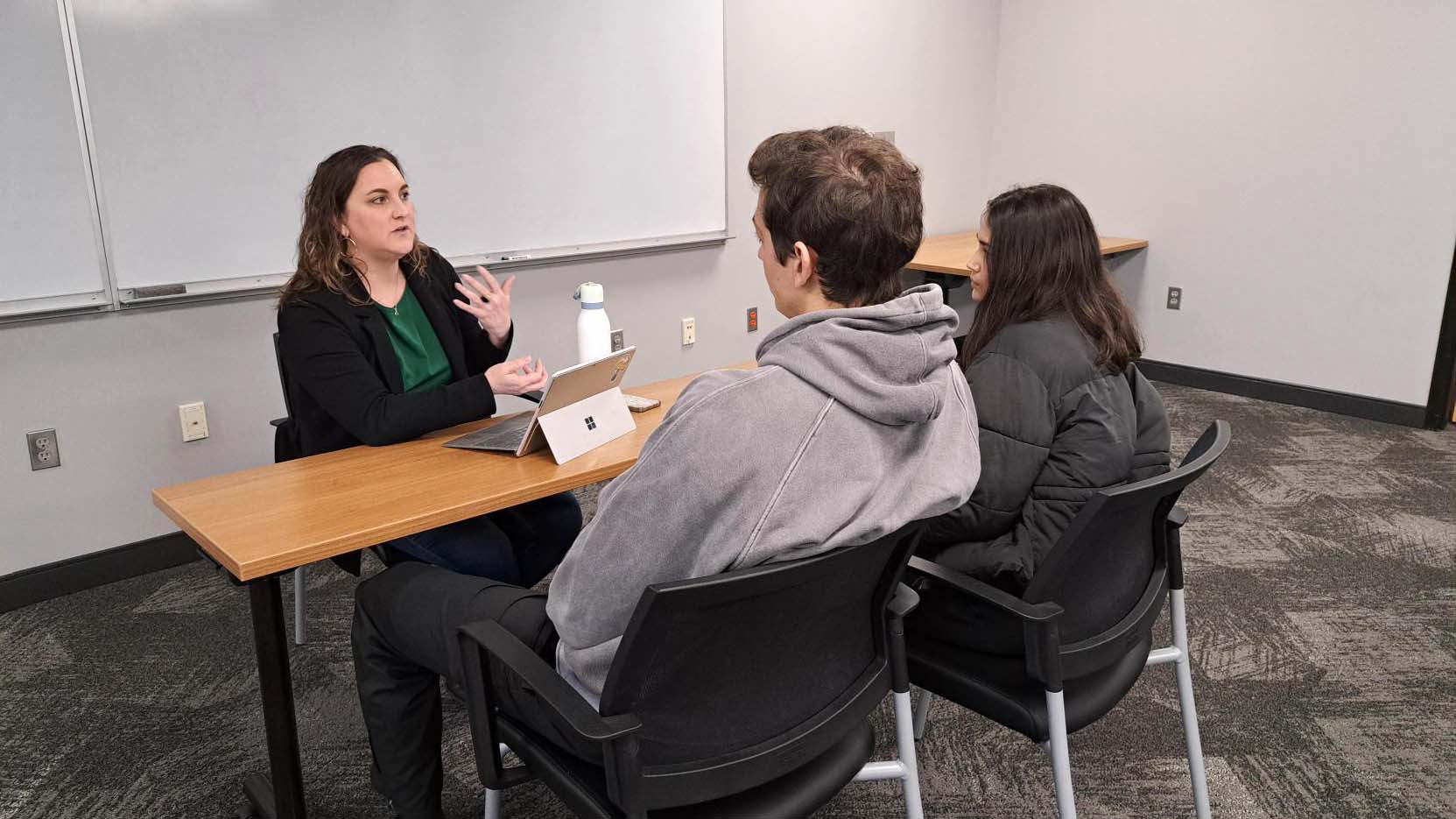
Continuing the Momentum
With the continued success and growth of the CREATE-X Capstone, Omojokun is committed to sustaining this momentum and expanding the program further, especially given the endorsement of CREATE-X Director Rahul Saxena. He says this will require collaboration from more people, including experienced entrepreneurs from Atlanta’s vibrant ecosystem.
Interested in participating in or learning more about the College of Computing’s CREATE-X Capstone? Contact Omojokun at omojokun@cc.gatech.edu to explore opportunities for involvement.
As computing revolutionizes research in science and engineering disciplines and drives industry innovation, Georgia Tech leads the way, ranking as a top-tier destination for undergraduate computer science (CS) education. Read more about the college's commitment:… https://t.co/9e5udNwuuD pic.twitter.com/MZ6KU9gpF3
— Georgia Tech Computing (@gtcomputing) September 24, 2024


